Rebecca Fallas is a full-time PhD student who has just submitted her thesis on ‘Individual Responsibility and The Culture of Blame Surrounding Infertility in Ancient Medical Texts’. We asked her if she had any advice for other PhD students approaching submission – here’s what she wrote!

‘You know the transitional phase of childbirth, where a woman says she can’t go on and the midwife will say that means you’re nearly there? Well I’m hoping that is the same with this thesis.’
About a month before submitting my thesis I found myself uttering this sentence (working on ancient infertility inevitably means that any analogies I make are related to childbirth in some way). This was at the stage where the tiredness had really set in but it was also the point where the end was in sight and I finally began to believe that my thesis could be completed before the deadline for submission.
As anyone will tell you, the final few months before submitting a PhD thesis are a whirlwind. There are drafts and redrafts being pinged back and forth between you and your supervisors. That section of a chapter that you’ve been (often with good reason) putting off for the last three years can wait no longer. There are corrections to be made, references to chase, a bibliography to check and arguments to refine and all you really want to do at this point is lie down in a dark room and pretend the world doesn’t exist (this may have been just me but I suspect it’s fairly common).
Although slightly manic, as the thesis came together I actually found I enjoyed the final stages of thesis writing. Admittedly this may have been an academic version of Stockholm syndrome (where kidnap victims start to identify with their captors) but I learned a lot in those last few months before submission. Having had some time to reflect I thought I would share some of the tactics I employed to get my thesis written, things which helped me to keep my sanity – and one thing which meant that I nearly missed my deadline.
1) Get organised.
In the final few months before submission your world shrinks somewhat and your thesis is likely to become, if not the only thing in your life, one of the few things that can grab your attention. Although this is true to some extent throughout your PhD it does step up a gear at this point. Knowing that this would be the case a couple of months before submitting I decided to get organised.
In terms of thesis this meant going through all the criteria for submission from how to set out the title page to downloading the form that I needed to complete when I submitted. I also made sure I had all the paper and ink cartridges I would need for printing. I also sorted out all the non-thesis things that needed to be done before submission. I wrote birthday cards, booked appointments and did anything I could that would mean I needed to keep as little as possible in my head and fewer things to distract me.
2) ‘Thesis brain’
Unfortunately being so focused on one thing means that inevitably other things fall out of your brain. This might be a case of not being able to remember simple facts or completely forgetting people’s names. In my case it was forgetting that the university library doesn’t open on a bank holiday (let’s be honest, forgetting that it actually was a bank holiday). If your brain deems it non-essential it may well refuse to recall it.
I termed this phenomena ‘thesis brain’ and if it does happen to you rest assured you probably aren’t losing your memory and it is (mostly) reversible once you’ve submitted. The other positive of ‘thesis brain’ is that it gives you some interesting stories to tell post-submission (one of mine includes two suspected cases of Ebola – don’t ask).
3) Plan some time out.
With a deadline looming it’s easy to fall into the trap of thinking ‘I don’t have time to stop’ but you do and it’s essential that you do. This doesn’t have to be a big night out and to be honest you will probably be too tired at this point anyhow. Take an hour out to have coffee with a friend or dinner with family or anything that involves communicating with another human being. Admittedly, had I read this advice six months ago I would have thought two things: a) what an obvious thing to say and b) it’s ok for you to say that but I really don’t have time. However, in the middle of submitting a thesis it’s easy to forget and although it’s taken me a long time to learn this, taking that time out will make you more productive in the long run, I promise.
4) Beware of the inevitable guilt trip.
On the subject of taking time out, this seems the perfect time to mention guilt. For me, and probably a lot of people, writing and guilt go together. From asking myself why hadn’t I read/written this before now, to ‘what on earth was I thinking taking a week off last Christmas?’: I could beat myself up about anything. About two months before submitting I realised that I was spending too much time and energy (of which I had little to spare) on asking myself why I hadn’t done something already rather than getting tasks completed now.
In the end I told myself there was time to beat myself up after submitting (although to be fair after the thesis was finished it didn’t matter anymore) and right now it was about getting on with it – this telling-off was the best thing I ever did and freed me to get on with finishing the thesis.
5) There is no right way to complete a thesis.
Of course, there are guidelines to follow and standards to be met but how you go about getting there is unique to you. Just because Bob wrote his introduction in his first year and looks at you in horror when you say you haven’t written yours 5 months before submission does not mean you are doing the PhD wrong, just that you’re approaching it in a different way, and that’s fine (really it is). Also if, like Bob, you did write a perfect introduction by the end of your first year that’s also fine but do try and keep the looks of horror to a bare minimum – they are not helpful.
6) Do not – I repeat do not – finish proofing, print, bind and post off your thesis on the submission date.
This is what I did and it was nearly my undoing (and yes I should know better). I was very lucky that this did not go terribly wrong. It will take you longer than you think to print out your thesis. In my case, this was a three-and-a-half hour printing marathon which involved much shouting at my printer (which I still cannot look at without an involuntary shudder) and cleaning the entire house because I could not stare any longer at the printer willing it to print quicker.
This resulted in me turning up at the binders 15 minutes before it shut. They (very kindly) ended up staying open 30 minutes later than normal during which time they had to deal with a slightly hyper and very tired PhD student (I still owe them a box of chocolates). Then there was the sprint to the post office before it shut at 6pm.
Do not do this. However, if this does happen to you remember you are not alone.
7) Recognising that the end is in sight.
One of the scariest things about a PhD is that it is your project and only you can write it. This is not merely scary: it can be overwhelming at times. However, in those final few months I realised that while the impending deadline was still scary, my thesis no longer was. Despite all its faults, all the things I might have done differently and all the things I still don’t know (I have a long list of all three) I had written a thesis. Four months before I submitted, I genuinely didn’t believe this was something I would achieve. However, very slowly in those last few months I began to feel that, although I still had no idea how it was going to happen, finishing my thesis was something I could do.
Those final few months are tough, there is no way around that, but for me they were also the most rewarding part of the entire PhD. In the final stages of thesis writing everything happens fast; all of a sudden, chapters go from being drafts to being finished, you find a place for the pesky bit of evidence that needed to be included but didn’t seem to fit anywhere and that perfect quote to open Chapter 5 suddenly appears from nowhere. There is nothing like seeing a project you’ve been working on for so long come together in this way. However, in the midst of submitting a thesis it’s easy not to recognise this and to ignore all the little accomplishments because all you can think about is what is left to do.
And perhaps this is the most important message I would pass on to anyone heading towards completing their thesis. No matter how stressful it is or how tired you are, take enjoyment out of seeing your thesis come together and from the knowledge that the end is in sight.
by Rebecca Fallas
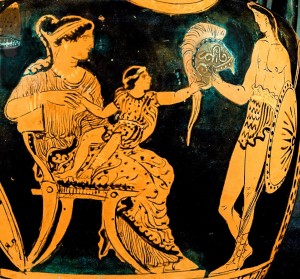 In societies where the threat of armed conflict was an ever-present element of the political and social experience, the impact of war was acutely felt by the immediate families of those whose role it was to train for and engage in combat. This conference aims to explore the roles and experiences of military families (defined here as the nuclear family of soldier, partner and children) in the ancient world and to situate these within the wider context of the history of such families. We therefore welcome offers of papers on any aspect of military families in the ancient world as well as comparative studies which consider more recent historical contexts.
In societies where the threat of armed conflict was an ever-present element of the political and social experience, the impact of war was acutely felt by the immediate families of those whose role it was to train for and engage in combat. This conference aims to explore the roles and experiences of military families (defined here as the nuclear family of soldier, partner and children) in the ancient world and to situate these within the wider context of the history of such families. We therefore welcome offers of papers on any aspect of military families in the ancient world as well as comparative studies which consider more recent historical contexts.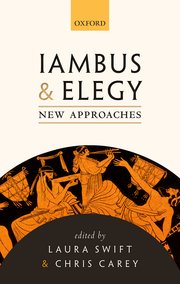
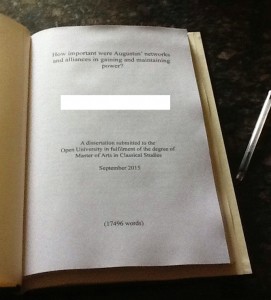
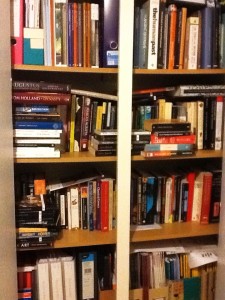
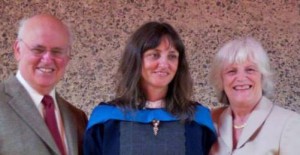
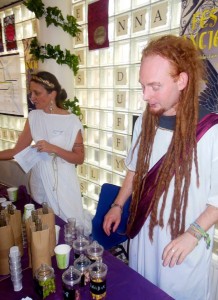

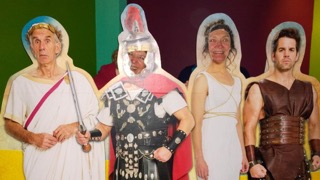
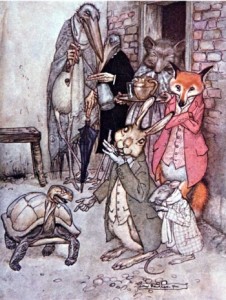
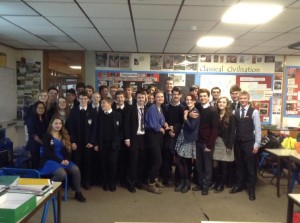
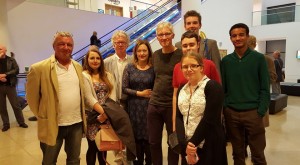
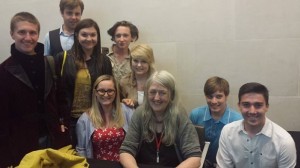
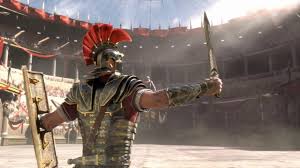 In the modern world, these re-workings of ancient content and material must also be considered re-mediations, in that they not only reference ancient sources but also borrow tropes (in story/content decisions as well as aesthetic representations) from other media. For example, the arena scenes that were so iconic in the film Gladiator are now familiar to us precisely because they have been reproduced in an array of other media with similar content: the TV Series
In the modern world, these re-workings of ancient content and material must also be considered re-mediations, in that they not only reference ancient sources but also borrow tropes (in story/content decisions as well as aesthetic representations) from other media. For example, the arena scenes that were so iconic in the film Gladiator are now familiar to us precisely because they have been reproduced in an array of other media with similar content: the TV Series